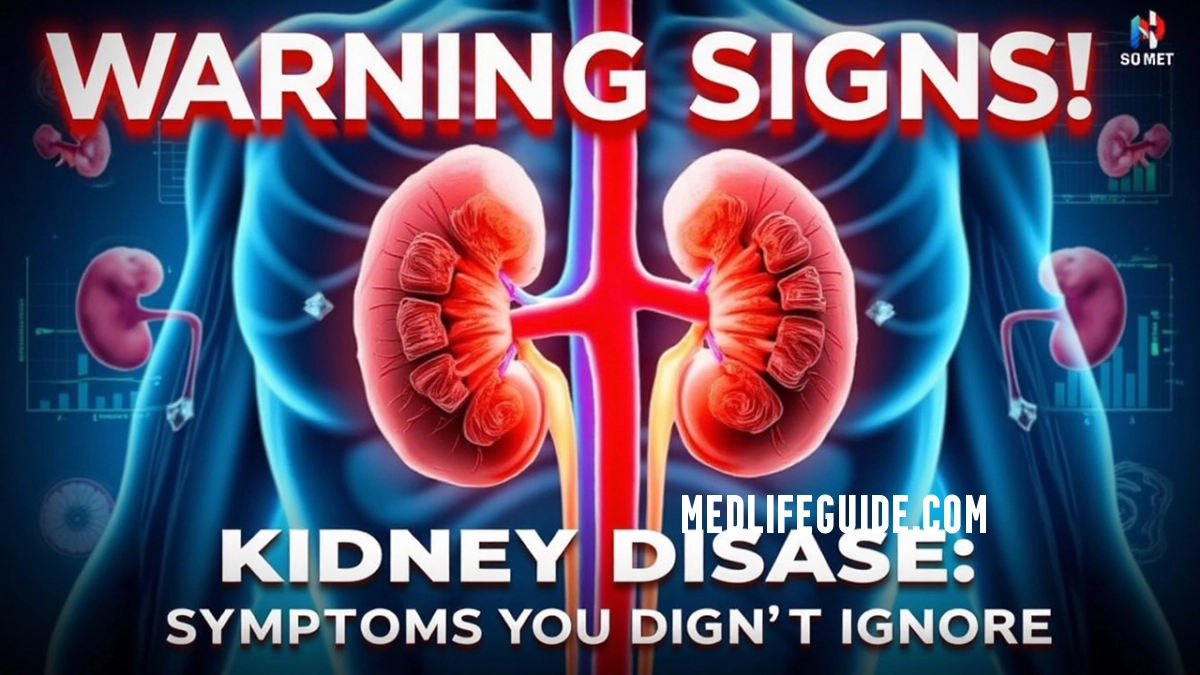Your kidneys are silent workhorses—filtering waste, balancing fluids, and regulating blood pressure. But when they start failing, the symptoms can be subtle or mistaken for other conditions. Recognizing the early signs of kidney disease can mean the difference between manageable treatment and irreversible damage.
- Common and lesser-known symptoms of kidney disease
- Risk factors that increase your chances of kidney problems
- When to see a doctor—and what tests to expect
- Preventive steps to protect your kidney health
What Are the Early Signs of Kidney Disease?
Kidney disease often progresses silently, but your body does send signals. Here are the key signs to watch for:
1. Fatigue and Weakness
Healthy kidneys produce erythropoietin (EPO), a hormone that helps make red blood cells. When kidneys fail, EPO levels drop, leading to anemia—leaving you exhausted even after rest.
“I thought my tiredness was just stress, but my doctor found my kidney function was at 40%.” (Potential area for a real patient story.)
2. Swelling (Edema) in Hands, Feet, or Face
Failing kidneys can’t remove excess fluid, causing puffiness in:
- Ankles and feet
- Hands
- Under the eyes (especially in the morning)
3. Changes in Urination
Your urine can reveal a lot:
- Foamy urine (protein leakage)
- Frequent urination at night
- Blood in urine (hematuria)
- Difficulty urinating or reduced output
4. Persistent Itching and Dry Skin
Kidneys filter toxins—when they don’t, waste builds up, causing itchiness and dry, flaky skin.
5. Metallic Taste in Mouth or Bad Breath
A buildup of waste (uremia) can leave a metallic taste or ammonia-like breath.
6. Nausea and Loss of Appetite
Toxins in the blood can cause nausea, vomiting, or unintended weight loss.
7. Shortness of Breath
Fluid buildup (or anemia) may make breathing difficult, even with mild activity.
8. High Blood Pressure
Kidneys help regulate blood pressure. Damage can create a dangerous cycle—high BP harms kidneys, and kidney disease worsens BP.
9. Muscle Cramps and Restless Legs
Electrolyte imbalances (low calcium, high phosphorus) trigger painful cramps or restless legs at night.
10. Trouble Concentrating or Memory Fog
Toxins affecting the brain can lead to confusion, poor focus, or memory lapses.
Who’s at Risk? Key Factors for Kidney Disease
- Diabetes (Leading cause)
- High blood pressure
- Family history of kidney disease
- Age 60+ (Natural decline in kidney function)
- Heart disease
- Long-term NSAID use (e.g., ibuprofen)
When to See a Doctor
- If you have 2+ symptoms listed above
- Family history of kidney failure
- Uncontrolled diabetes or hypertension
Tests your doctor may run:
- Blood test (eGFR) – Measures filtration rate
- Urine test (ACR) – Checks for protein
- Imaging (Ultrasound/CT) – Looks for structural issues
How to Protect Your Kidneys
- Stay hydrated (Water > sugary drinks)
- Manage blood sugar & pressure
- Limit salt & processed foods
- Avoid smoking & excessive painkillers
- Exercise regularly (Even walking helps)
Conclusion: Don’t Ignore the Signs
Kidney disease often goes unnoticed until it’s advanced. If you’re experiencing multiple symptoms, see a doctor early. Simple tests can catch problems before permanent damage occurs.

